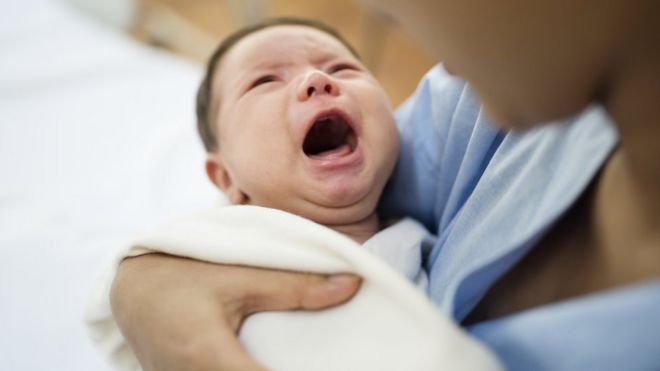Sunday, May 20, 2018
US birth rates drop to lowest since 1987
Summary:
Around 3.85 million babies were born in the United States in 2017, the fewest since 1987. Birth rates among women in their teens and twenties decreased while birth rates among women aged between 40 and 44 increased. Both the birth rate, the number of births per thousand, and fertility, a lifetime average forecast, fell in 2017.
Opinion:
It is easy to see why births are dropping: the younger generation simply can't afford to have kids. People can barely afford things like mortgage payments, cars, health insurance, and student loans, so it's clear to see why people are waiting until their forties to have kids. Another problem is that due to America's declining birth rate and fertility rate, we will likely reach a situation similar to that of Germany or Japan, where the death rate is greater than birth rates. This can have massive long-term consequences, like a smaller working class, which could in turn lower overall GDP growth. Additionally, a topic we discussed in class that also relates to this is entitlement programs. America runs on systems like Medicare/Medicaid and Social Security that rely on the assumption that there are more people who fund these programs than there are people who benefit from these programs. As a result of the shrinking working class and growing number of people eligible for Social Security, taxes will most definitely increase to accommodate the larger older population. Hopefully immigration will continue to increase in order to counteract the decreasing birthrate.
Do you think changes need to be made to entitlement programs in the future?
http://www.bbc.com/news/world-us-canada-44151642
https://www.cdc.gov/nchs/data/vsrr/report004.pdf
Subscribe to:
Post Comments (Atom)

7 comments:
Entitlement programs could be fixed in the future, but probably just shifted a little. I don't see a decrease in birthrates in purely 2017 is a big statistic, although it does seem like people are starting to learn from the millennial generation who maybe had kids too early. As far as entitlement programs go, it seems like most Americans are worried that Social Security will go broke. People need to fund it and a drop in population will further strengthen this fear. Because the United States has such a large budget, it would make sense to distribute them to things that affect the population more, which includes health benefits and social security. We have so much money on defense spending. "Social Security, Medicare, and Medicaid make up nearly half of all government spending, the total of which was roughly $4 trillion in 2017, according to the Congressional Budget Office". America runs on these systems because people benefit from them, so it's likely that taxes will increase in the near future to compensate.
If the current demographic trends continue, there will definitely be more budget problems in addition to the existing debt. A way to reform entitlement programs is means testing. While this goes against the idea of true equality and is unfair to retirees who don't get the benefits of all the taxes they paid when they worked, there's not many other ways for programs like Social Security to fund everyone who qualifies. If the money only went to people who really need it instead of everyone, including those who live comfortably and don't need the additional money, we could funnel the limited money more efficiently.
I think that this may be a consequence of the baby boom earlier on. Because of the increase in birth rate over that period of time, there were an increased population seeking employment thus fast forwarding a few years those same people are now eligible for entitlement benefits. It would be interesting to see if entitlement programs can be tweaked based on birth rate but as of now it seems unlikely. The current trend as birth rates are decreasing is not an optimistic one if we do not have enough people to replace the current workforce.
Check out this video by Hans Rosling on population growth. Makes a lot of sense. https://youtu.be/ezVk1ahRF78
I think we should find a solution to our current entitlement programs because the working class will get smaller and smaller. With the way it's going right now, I don't see life getting any cheaper and I don't think many people will have kids when they're younger. I don't think we'll be able to keep this up for long if we keep going this way because there will be more people retiring and less people working.
I believe that entitlement programs will eventually come to a point where it needs to be changed since the smaller working class will not be able to produce a big enough budget for the greater population of the retiring baby boomers. With inflating and prices increasing, and minimum wage not keeping up, the cost of living is definitely more expensive now than it was decades ago. If you look at a calculator for cost of living.. families with kids need to make $20 more per hour to keep up with cost of living, and without kids it's around $7 more. So it's no wonder birth rates are decreasing.
As education nationwide, as well as living expenses both, increase the birthrate will continue to fall. Furthermore, as people wait longer to have kids, numbers will also decline. However, due to the United States Culture and focus on family, I believe the U.S. will not be as greatly affected as other industrial nations.
Post a Comment